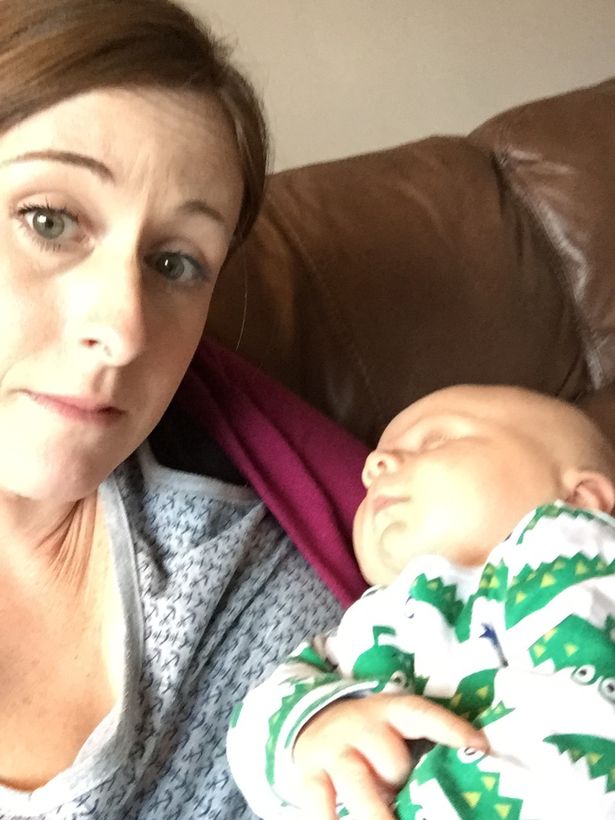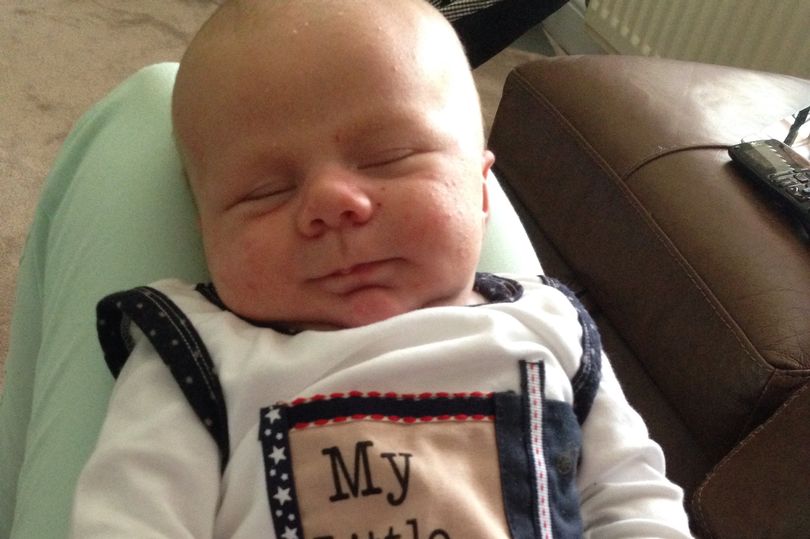Natalie King, 39, lost her son Myles to meningitis when he was 7 weeks old in May 2015. As the UK moves into “Plan B” of restrictions to combat the spread of the Omicron variant, Natalie and the charity Meningitis Research Foundation (MRF) are urging people to trust their instincts and seek medical support if they suspect meningitis - despite concerns of an “overwhelmed NHS” this winter.
7-week-old Myles showed no signs of illness or discomfort when Natalie and her husband Mark, 48, tucked him into bed in May 2015. A few hours later, he awoke in the night and made a strange grunting noise which sounded like gas. A few hours later, she noticed whilst changing his nappy that his skin was pale grey colour, and took her young son to hospital.
“I remember the doctor coming and taking his clothes off and asking me how long he’d had a tiny purple spot under his arm,” Natalie remembers. “I hadn’t even noticed it. That was the first time they said, we think it could be meningitis.”

Natalie and her son, Myles.
Myles’ condition rapidly deteriorated until the “small purple pinprick” spread across his entire body; due to septicaemia (blood poisoning), caused by the bacteria that cause meningitis. He was transferred to Southampton General Hospital where he sadly died at 3pm that afternoon, less than 24 hours after he’d been tucked into bed.
“The pain is a pain like no other,” said Natalie. “Driving home, I could see everyone going about their normal lives. I remember feeling complete shock, bewilderment, and anger. Our life had stopped but the world was carrying on.”
As the UK government begins to introduce new “Plan B” restrictions this week, to combat growing concern around the Omicron variant of COVID-19, Meningitis Research Foundation has issued a stark warning to parents and individuals concerned about meningitis.
“Anyone who suspects meningitis, either in themselves or in a loved one, should trust their instincts and seek medical help as an absolute priority,” said Vinny Smith, Chief Executive of Meningitis Research Foundation. “We’re very worried that people will see headlines about the NHS being under extraordinary pressure, and feel that they cannot take their loved one to hospital - or be tempted to “wait and see”. Unfortunately, as Natalie’s tragic loss demonstrates, we know that meningitis and septicaemia can kill or cause serious, life-changing impairments in less than 24 hours.”
 Myles King.
Myles King.
Anyone with questions or concerns about meningitis and septicaemia can contact the MRF Support Service on 080 8800 3344 or helpline@meningitis.org (Mon-Fri, 9-5). Extensive symptoms information is available on the MRF website at www.meningitis.org/symptoms.
“Don’t delay seeking medical treatment if you think something is seriously wrong,” urged Natalie. “Familiarise yourself with all the symptoms, and always trust your instincts.”